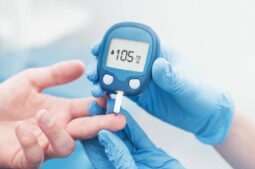
Periods can often feel like an annoying fact of life that we could well do without, but in fact the existence of regular periods is an indication that the body is generally in good working order. Conversely, the absence of periods, amenorrhea, can be a signal that something is amiss. It is defined as either primary, when a girl does not start menstruating by the age of 15 or 16, or secondary, when a woman who has passed through puberty and had regular menstruation, misses three or more periods in a row.
Of course, there are times in every woman’s life when she has an absence of periods, mainly before puberty and after menopause. In between the two, and apart from pregnancy, we should probably be concerned if periods stop without explanation. What causes amenorrhea, what are the symptoms, and how is it treated?
Amenorrhea causes
There are two broad categories of amenorrhea, it can be the result of natural events such as pregnancy, breastfeeding or menopause, or it could be symptomatic of some kind of problem. It can be triggered by a certain medication or lifestyle, sometimes by a hormonal imbalance or an abnormality of physical structure. This is the kind that needs to be treated.
Amenorrhea caused by medication
Medications such as antipsychotics and antidepressants can cause periods to stop for some women. Other drugs such as chemotherapy or medications to treat high blood pressure can also cause problems with menstruation, as can some treatments for allergies. Occasionally, oral hormonal contraceptives can cause a delay of a few months in returning to a normal cycle, most frequently involving the types of contraceptive that are injected or implanted.
Lifestyle factors
Very low body weight can be a cause of amenorrhea since being underweight can disrupt the normal balance of hormones, which in turn results in the cessation of menstruation. This applies whether the low weight is due to anorexia or undernourishment for another reason, or due to excessive exercise or athletic training. High levels of stress can also be the culprit. Stress can have a negative impact on the functioning of the hypothalamus, which regulates the hormones associated with ovulation and so high levels of stress can be an indirect cause.
Hormonal imbalance
An imbalance of hormones, even when it is not caused by stress or other lifestyle factors, can occur for several other reasons and prevent ovulation. These include Polycystic Ovary Syndrome (PCOS) an over or under-active thyroid gland or a tumour on the pituitary gland. Premature menopause, in which the menstrual cycle stops because of a depleted ovarian reserve around the age of 40, instead of the normal 50, can also be classed as a hormonal malfunction.
Structural abnormalities
Physical problems with the reproductive system can result in a lack of periods. Sometimes a physical barrier in the vagina can block any blood flow from the uterus. In other cases, an accumulation of scar tissue in the lining of the womb can prevent the normal build-up and shedding of the womb lining and thus prevent the occurrence of periods. In rare cases, an abnormality of foetal development can result in a girl being born without a uterus, cervix or vagina, resulting in complete amenorrhea.
What are the symptoms?
Apart from the most obvious sign, the absence of periods, women with amenorrhea can experience some other symptoms. They can include:
- Acne, which is often also associated with hormonal disruption and changes associated with puberty or pregnancy,
- Vaginal dryness, also linked in some cases to excessive exercise,
- Increased or unwanted growth of hair on the body, often a symptom of a hormonal imbalance,
- Changes in vision,
- Nipple discharge, commonly linked to missed periods.
While the absence of periods is not in itself dangerous, and whether or not you have any of these secondary symptoms, it’s always a good idea to see a doctor if you miss three or more periods in a row.
Diagnosis of amenorrhea
The first step in diagnosis will be a pregnancy test to rule out that possibility. This will probably be followed by blood tests to measure levels of hormones in your blood such as oestrogen and progesterone among others. Imaging tests like ultrasound, MRI or CT scans allow the medical advisor to view the structure of the internal organs and also check for any cysts or growths in the uterus or on the ovaries.
How is amenorrhea treated?
The treatment would depend on identifying the underlying causes of the condition. If there is a hormonal imbalance, then either natural or synthetic hormones could be prescribed in order to redress the balance. If cysts or scar tissue are preventing normal menstruation, these would be removed. If the absence of periods is the result of lifestyle factors, your doctor could recommend changes to diet and exercise in order to help with weight management and the maintenance of a healthy diet / exercise balance.
What about the impact of amenorrhea on fertility?
Clearly if you are not menstruating, your reproductive system is not functioning as it is supposed to, and probably, you are not ovultaingand are therefore infertile, if only for the time being. However this is not 100% reliable, since when your periods resume, you will have ovulated 12 to 16 days before the period. Therefore in theory, you could become pregnant when you have amenorrhea, but only if your natural cycle was about to resume.
How IVI can help
IVI continues to research and develop new approaches to the problem of infertility. Among our research projects is one studying the impact of Polycystic Ovary Syndrome (PCOS) and how new treatments may alleviate the problem. For any patient suffering from infertility as a result of amenorrhea, whatever the cause, it is always worth visiting one of our clinics for an assessment and professional advice on what the next steps might be. You can take encouragement from the fact that 90% of patients who consult IVI and put their trust in us do go on to achieve their dream of becoming parents.
So that you know what to expect, why not have a look at our video about your first visit to IVI? You can get in touch with us using our online contact form, or just give us a call from the UK on Freephone 0800 52 00 161, or from other countries, +34 960 451 185.





Comments are closed here.